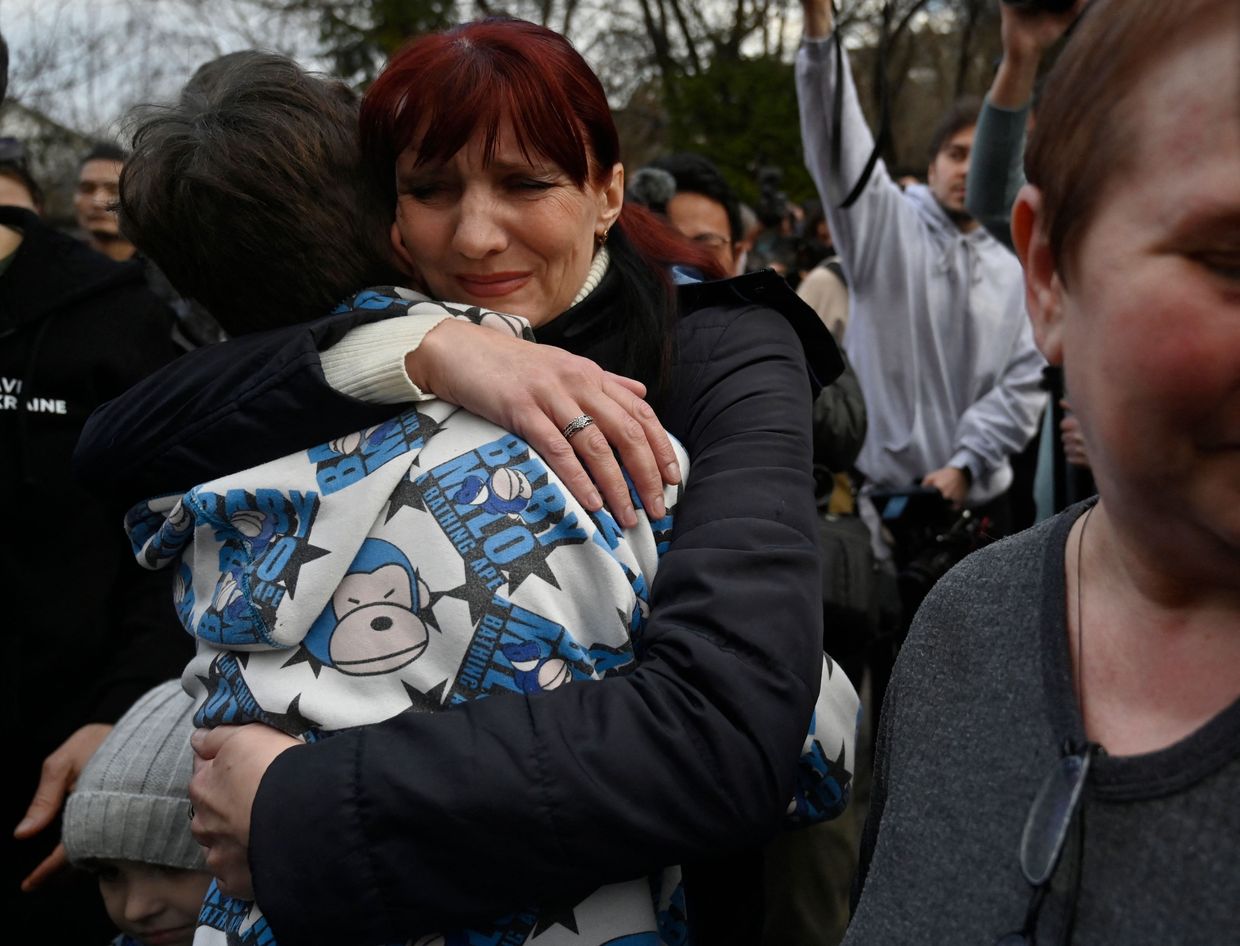Some Chinese Weigh Painful Question: Stay or Flee Under Trump?

© Gabriela Bhaskar/The New York Times

© Gabriela Bhaskar/The New York Times

© Haiyun Jiang for The New York Times

© Evelyn Hockstein/Reuters

© Victor J. Blue for The New York Times

© Erin Schaff/The New York Times
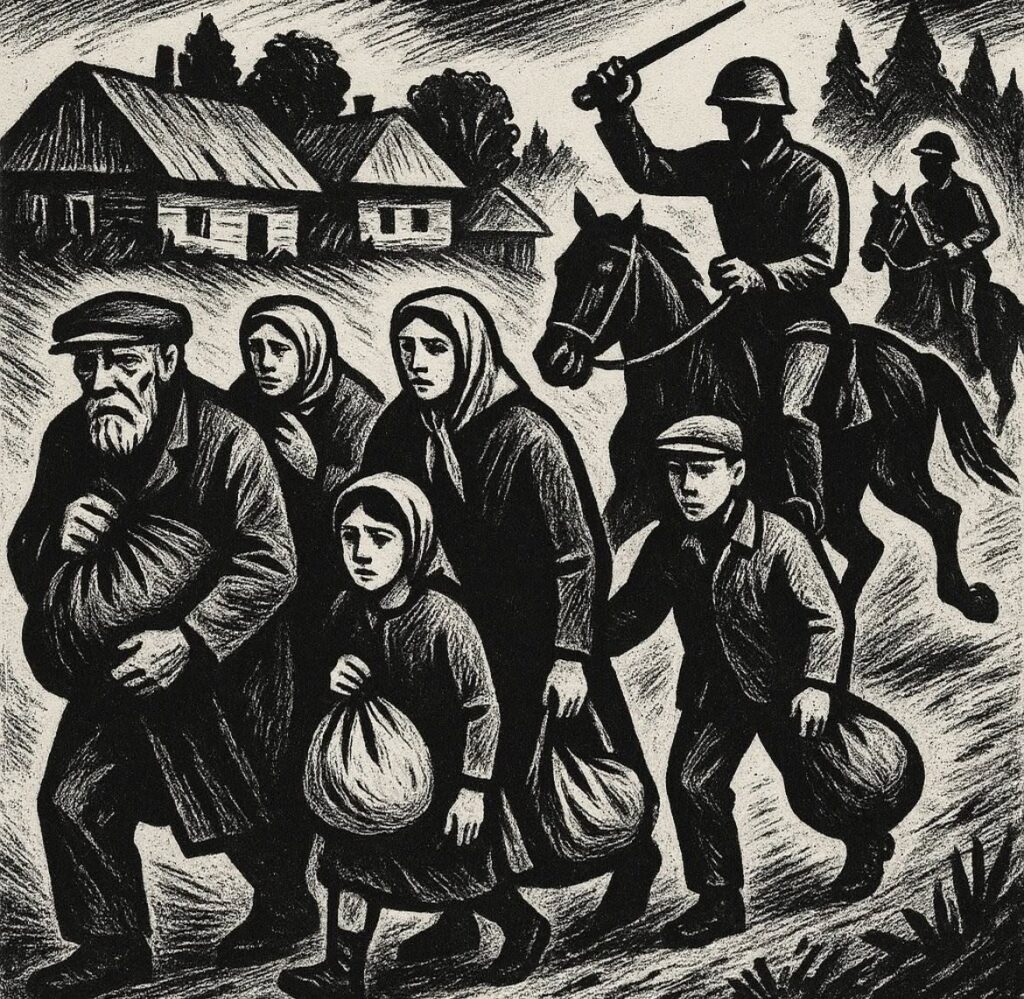
Ukrainian President Volodymyr Zelenskyy has signed a law recognizing the forced resettlement of around 700,000 Ukrainians from the territory of communist Poland in 1944–1951 as an act of deportation.
The autochthonous population of Lemkivshchyna, Kholmshchyna, Nadsiannia, Pidliashshia, and other Ukrainian lands is the victim of the resettlement of the people, who were driven from their native homes by totalitarian regimes.
LTR reports that the draft law was first submitted in 2019 but has only now come into force after years of revisions and parliamentary hearings.
“It’s good that step by step, we’re achieving legal and historical clarity in these matters, and most importantly, without scandals or politicization of history,” says Anton Drobovych, former head of the Institute of National Memory.
The new law guarantees compensation for material and moral damages to victims and their descendants. One-time financial aid is envisioned, along with benefits similar to those granted to war veterans, including free public transportation and discounts on intercity travel.
The deportation of Ukrainians was carried out under agreements between the USSR and the Polish communist regime. Operation Vistula in 1947 was the largest-scale phase, when over 140,000 Ukrainians were forcibly relocated to northern and western Poland.
In 2002 and 2004, respectively, Poland’s Constitutional Tribunal and the European Court of Human Rights recognized these resettlements as unlawful.
Since 2018, Ukraine has annually observed the Day of Remembrance for Victims of Ukrainian Deportations on the second Sunday of September. The law enshrines this date as a symbol of restored dignity and historical truth.

© Nadja Wohlleben/Reuters

© Erin Schaff/The New York Times
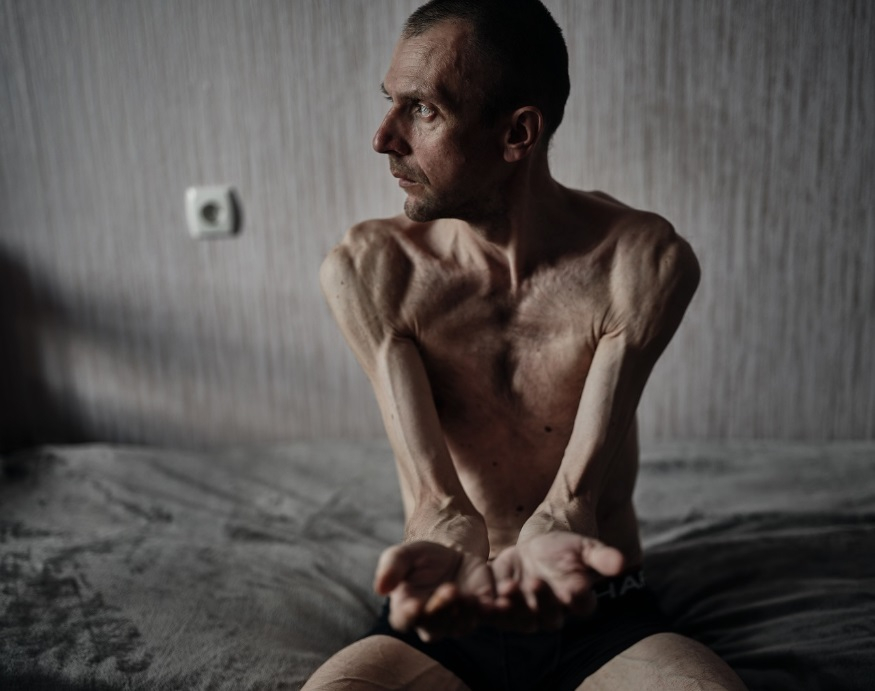
The world demands the truth. International response to Russia’s brutality is growing stronger, as the Netherlands and 40 other OSCE countries initiate an independent investigation into the torture of Ukrainian prisoners of war.
The investigation will be conducted under the OSCE’s Moscow Mechanism.
This mechanism a special formal procedure that allows OSCE participating states to establish short-term international expert missions to investigate human rights violations and humanitarian consequences in a specific region.
Since the start of Russia’s all-out war, this mechanism has been used to document war crimes, the deportation of children, torture of civilians, and widespread human rights violations, reports Ukraine’s Coordination Headquarters for the Treatment of Prisoners of War.
The new investigation will establish facts regarding the torture of Ukrainian POWs, and this evidence will become the basis for convictions in Ukrainian courts, the International Criminal Court, and a tribunal on the crime of aggression against Ukraine.
“He said we deserve genocide”: Journalists unmask Russian “Dr. Evil” torturer of Ukrainian POWs
“The Netherlands and its partner countries are working to uncover the truth and ensure accountability for Russia’s war crimes in Ukraine,” says Dutch Foreign Minister Kaspar Veldkamp.
As noted by Ukraine’s Coordination Headquarters for the Treatment of Prisoners of War, this process is critical to ensuring that no act of cruelty goes unpunished.
Previously, a special OSCE monitoring mission operated in Ukraine to observe the situation during Russia’s 2014 invasion of Donbas. In mid-2022, Moscow blocked the extension of the SMM’s mandate, and the mission ceased operations.
Since then, the OSCE has continued to support Ukraine through other programs, including an extra-budgetary assistance initiative, though without a direct monitoring presence in active combat zones.

© Marco Bello/Reuters

© Fred Ramos for The New York Times

© George Walker Iv/Associated Press

© Dave Sanders for The New York Times

© Philip Cheung for The New York Times

© Federico Parra/Agence France-Presse — Getty Images

© Saul Martinez for The New York Times

© Jim Watson/Agence France-Presse — Getty Images

© Dave Sanders for The New York Times

© Ava Pellor for The New York Times

© Jim Huylebroek for The New York Times

© Jim Huylebroek for The New York Times

© Jim Huylebroek for The New York Times

© Jose Luis Magana/Associated Press

© Ivor Prickett for The New York Times
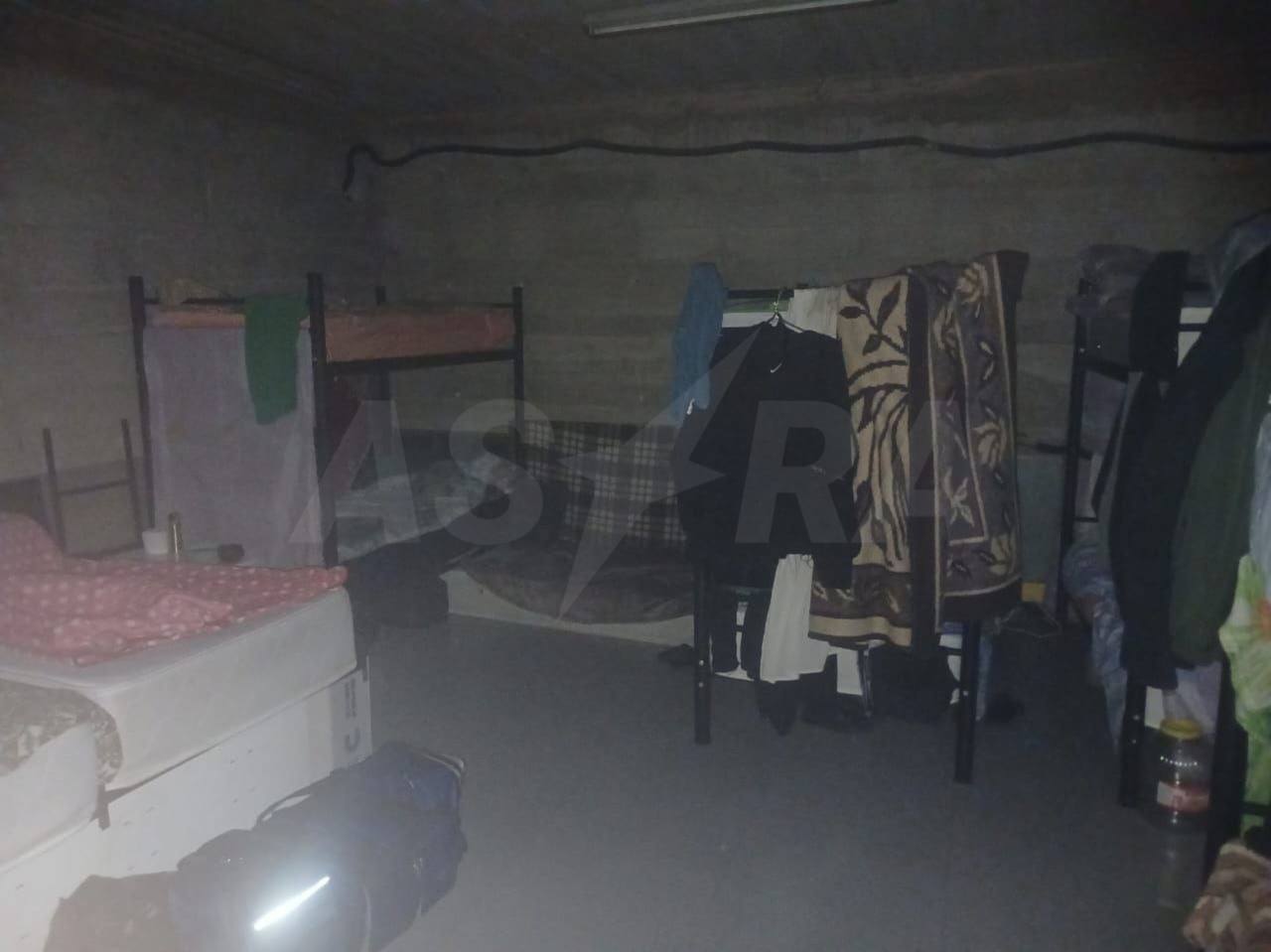
Over 45 Ukrainians forcibly deported by Russia from Ukraine's occupied territories are being held in a basement at Russia's border with Georgia without food, water, and basic healthcare, independent media outlet Astra reported on June 21.
"We are in a basement without utilities: there is no shower or toilet, they don't feed us. Volunteers bring humanitarian aid, but it lasts for a couple of days and not for everyone," one of the held Ukrainians told Astra.
A decree by Russian President Vladimir Putin has ordered Ukrainians still living in occupied territories to leave unless they "regulate their legal status," namely, obtaining Russian citizenship.
"We emphasize that these systematic deportations and persecutions are part of Russia's genocide policy against the Ukrainian people," Foreign Ministry spokesperson Heorhii Tykhyi said on March 21.
At least 45 Ukrainians have been held at the Verkhniy Lars border checkpoint between Georgia and Russia for several days.
One of the deported Ukrainians has been hospitalized as they await passage out of Russia and into Georgia.
"There were 8 of us, 3 days ago. Every day, more people are brought here and the number is growing. Now there are 45 people, some have been here for a month. There are disabled people and people with serious illnesses," one of the held Ukrainians said.
The basement facility has since 2023 held deported Ukrainians barred from entering the Russian Federation and the Ukrainian territories it occupies.
The held Ukrainians were denied entry into Georgia. Most did not have the necessary travel documents, but 16 Ukrainians with passports were denied entry as well, Astra reported, citing the non-profit organization Tbilisi Volunteers Organization.
"The basement is damp, there are drops of water on the ceiling, (it's hard) to breathe, everyone smokes, they don't let us outside. We sleep for four hours, taking turns. Some sleep on the floor," one of the deported Ukrainians said.
The basement only houses 17 sleeping spaces, but another 100 deported Ukrainians are expected to arrive at the facility, a volunteer told Astra.
Following a pause in deportations to Georgia in 2024, Russia has resumed deportations as Georgia prepares new immigration legislation, the Tbilisi Volunteers Organization says.
Serhiy Serdiuk, a resident of occupied Zaporizhzhia Oblast, was deported and banned from re-entering Russia and Ukraine's occupied territories for 40 years, the Guardian reported on June 21.
Russian authorities pressed Serdiuk, an educator, to continue work under Russia's imposed school curriculum.
Serdiuk and other staff at a school in Zaporizhzhia Oblast's Komysh-Zoria town refused and were met with threats.
Serdiuk was similarly deported to Georgia, from where he flew to Moldova and crossed back into Ukraine.
Due to Russia's illegal and unrecognized annexation of Ukraine's occupied territories, Ukrainian citizens are pressured to obtain Russian citizenship or face deportation and entry bans.
 The Kyiv IndependentLinda Hourani
The Kyiv IndependentLinda Hourani

The lower house of the Dutch parliament on June 19 officially recognized the 1944 mass deportation of Crimean Tatars by the Soviet Union as genocide, according to a statement from the parliamentary press service.
The motion cited precedent from other countries that have recognized the forced deportations as genocide, including Poland, the Czech Republic, Canada, Latvia, Lithuania, and Ukraine.
In the adopted text, Dutch lawmakers declared that the Soviet-led deportation of Crimean Tatars, which took place between May 18 and 21, 1944, constitutes genocide by contemporary legal and historical definitions.
The 1944 deportation was carried out under direct orders from Soviet dictator Joseph Stalin, who labeled the entire Crimean Tatar population as traitors following the peninsula's liberation from Nazi occupation.
Over 190,000 Tatars were forcibly removed from Crimea in a matter of days, though some estimates place the number closer to 430,000, and sent to remote areas in Central Asia, mainly Uzbekistan, in brutal conditions that led to mass deaths.
The document pointed to the ongoing repression of Crimean Tatars under Russian occupation since 2014. It said that "many Crimean Tatars have been unjustly imprisoned, subjected to torture by the Russian Federation, or forcibly disappeared," and added that "Russia has likely continued a policy of genocide against Crimean Tatars."
Foreign Minister Andrii Sybiha welcomed the decision, calling it "a powerful gesture of solidarity with the Crimean Tatar people, who are still facing persecution under Russia’s temporary occupation of the Ukrainian Crimea peninsula."
Sybiha noted that the Netherlands is now the seventh country to formally recognize the deportation as genocide and urged other nations to follow suit.
"Recognizing this historical injustice is critical not only for establishing truth and justice, but also for preventing future atrocities," the minister wrote.
Ukraine's parliament recognized the deportation as genocide in 2015 and established May 18 as the official Day of Remembrance for the Victims of the Genocide of the Crimean Tatar People.
 The Kyiv IndependentAnastasiia Lapatina
The Kyiv IndependentAnastasiia Lapatina
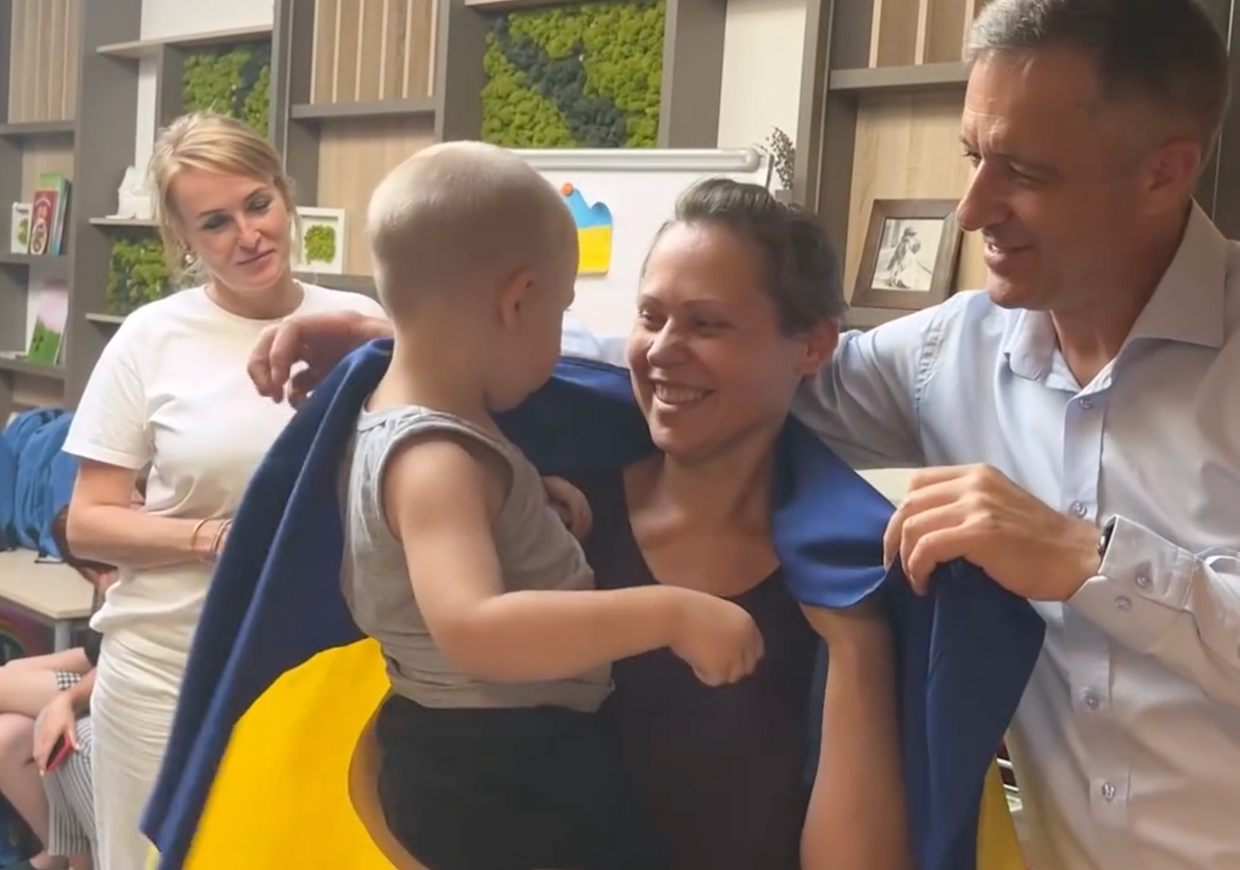
Ukraine successfully brought back five children who had been forcibly taken to Russia as well as Russian-occupied territory, Presidential Office head Andriy Yermak announced on June 12.
The children have been returned home under the President of Ukraine’s initiative, Bring Kids Back UA, according to Yermak.
"We are fulfilling the President's mission — to bring back every Ukrainian child," Yermak said in an statement.
Since February 2022, at least 20,000 Ukrainian children have been abducted from Russian-occupied territories and sent to other Russian-controlled areas of Ukraine or to Russia itself, according to a Ukrainian national database, "Children of War." Only 1,359 children have been returned thus far.
Dmytro Lubinets, Ukrainian Parliament’s Commissioner for Human Rights, estimated that Russia has unlawfully deported up to 150,000 Ukrainian children, while the Children’s Ombudswoman, Daria Herasymchuk, puts the figure at 200,000–300,000.
In March 2023, the International Criminal Court (ICC) issued arrest warrants for Russian President Vladimir Putin and Children's Commissioner Maria Lvova-Belova, citing their involvement in the unlawful transfer of Ukrainian children. Russia dismissed the ICC's decision as "outrageous and unacceptable."
Under orders from Putin, children were transported via military aircraft in 2022, reclassified in Russian databases as native-born, and subjected to pro-Russian re-education before being adopted into Russian families. Ukrainian children had been transported to at least 21 regions throughout Russia.
Child abductions have played a key part of U.S.-Russia peace negotiations — all of which Russia has thus far rejected. Ukrainian officials have named their return as a key condition for any future peace agreement with Russia.
President Volodymyr Zelensky said on June 3 that during the Istanbul negotiations, Russian representatives dismissed the issue of abducted Ukrainian children as a "show for childless European old ladies" and acknowledged deporting several hundred children.
CNN reported on June 11 that the Yale University-based Humanitarian Research Lab, which spearheads the Ukraine Conflict Observatory is preparing to shut down after its funding was terminated by the Trump administration.
A Yale study published on Dec. 3 detailed Russia's systematic program of deporting and forcibly assimilating Ukrainian children.
 The Kyiv IndependentAnna Fratsyvir
The Kyiv IndependentAnna Fratsyvir